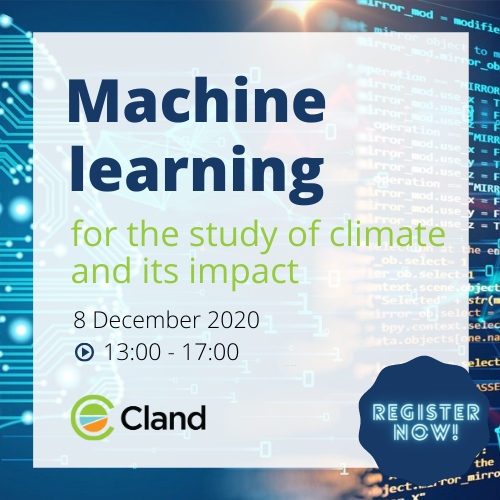Machine learning for the study of climate and its impact - December 8, 2020

CLand Convergence Institute has organized on December 8, 2020 by videoconference a workshop dedicated to “Machine learning for the study of climate and its impact”.
Machine learning is increasingly being used in climate science for a variety of applications, including greenhouse gas emissions, agricultural yield forecasting, mapping plant and soil characteristics, and emulating process-based models. This workshop brought together ten international speakers who presented machine learning applications to solve important problems related to climate change.
Find all the workshop presentations below

![]()
Please note that the videos and presentations available here are protected by a CC-BY-SA license.
This means you may not use the material for commercial purposes and must give appropriate credit.
More information
Machine learning as a framework for spatial and spatiotemporal
prediction in environmental and earth sciences: the dos and don'ts
Tomislav HENGL
[PDF]
Machine learning to predict peatland greenhouse gas emissions
Yuanyuan HUANG
[PDF]
Creating spatial insights into global-scale model inaccuracies
Johan VAN DEN HOOGEN
[PDF]
The decreasing vulnerability of French crop production to climatic hazards
Bernhard SCHAUBERGER
[PDF]
Walking through a random Forest: how to build, select, and inspect
a model of global forest symbioses?
Brian STEIDINGER
[PDF]
The implementation of machine learning algorithms in the prediction of
crop production in conservation agriculture under climate change
Yang SU
[PDF]
Tracking methane emissions globally using hyperspectral imaging
Alex D'ASPREMONT
[PDF]
A machine learning method to understand the primary climatic
drivers of wheat yield shocks across Europe
Peng ZHU
[PDF]
Machine learning emulators reveal divergence in soil carbon
controls between observations and process-based models
Katerina GEORGIOU
[PDF]



